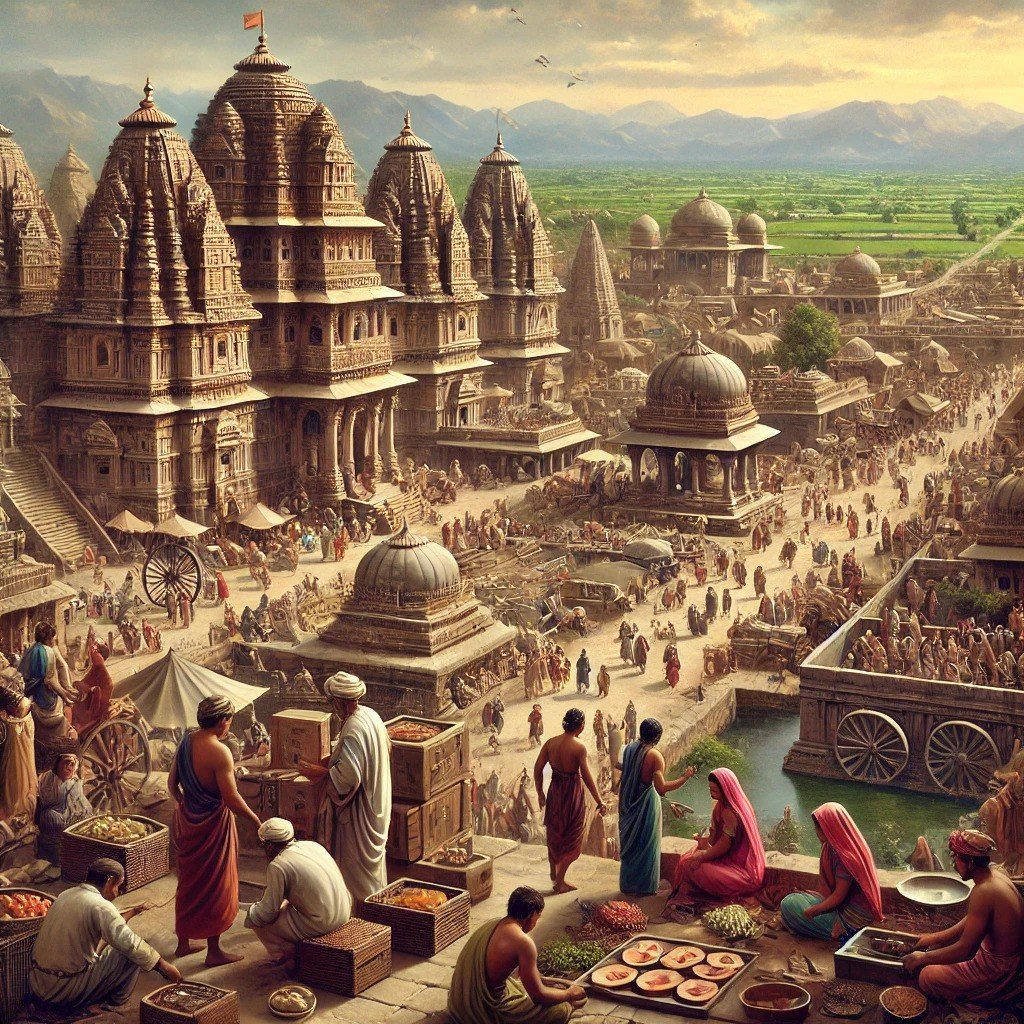Agrawau, a term that might seem unfamiliar to many, holds significant importance within the context of history, culture, and possibly geography. While the origins of the word are often debated, there is much to uncover about its potential meaning, its historical context, and its importance in shaping the society it represents. This article aims to explore every facet of Agrawau, from its etymology to its cultural contributions.
The Etymology of Agrawau
The word “Agrawau” could be derived from ancient languages or regional dialects, with roots in Sanskrit or Indo-Aryan languages. Various historians suggest that it might come from the words “Agra,” meaning foremost or leading, and “Wau,” which could mean region or territory. This interpretation points towards a leading or primary region of importance in the past.
Agrawau in Historical Context
Agrawau may refer to a specific area or territory of great historical significance. If Agrawau was indeed a region, it is essential to delve into its political and social history. Understanding how Agrawau contributed to the larger historical narrative of its time can help explain its rise and fall. Historians believe that this region might have been a trading hub, a political center, or an area of spiritual importance.
The Ancient Civilizations of Agrawau
Agrawau, during ancient times, was likely home to a variety of civilizations. Excavations and archaeological findings point to a diverse population that thrived in the region. The remains of temples, houses, and fortifications all suggest that Agrawau was not just an ordinary town but a thriving city-state with its own culture, governance, and economy.
Agrawau and the Influence of Trade
The strategic location of Agrawau could have made it a crucial center for trade. Historians suggest that it might have been located on a major trade route, allowing the city to flourish economically. The exchange of goods such as spices, textiles, and precious metals likely contributed to the wealth of Agrawau.
The Role of Religion in Agrawau
Religion played a pivotal role in shaping the culture of Agrawau. Temples and religious artifacts found in the region indicate that the people of Agrawau were deeply spiritual. Whether Hinduism, Buddhism, or other ancient religions dominated the region is still debated, but their influence on architecture and daily life is undeniable.
The Political Structure of Agrawau
Agrawau’s political structure was probably organized, with rulers or chieftains governing the region. It is possible that Agrawau was a part of a larger kingdom or empire but maintained a degree of autonomy. The governing systems were likely based on a hierarchy, with a focus on maintaining trade routes, defense, and religious harmony.
Art and Architecture of Agrawau
The art and architecture of Agrawau stand out as key cultural contributions. Agrawau’s artisans were likely skilled in carving, painting, and metalworking. The structures in the region reflected the grandeur and complexity of the society, with intricately designed temples, palaces, and public spaces.
Cultural Diversity in Agrawau
Agrawau was home to a diverse population, with people from different ethnicities and backgrounds contributing to its rich cultural tapestry. This diversity was likely a result of its position on major trade routes, which allowed the city to interact with different cultures and civilizations.
Festivals and Celebrations in Agrawau
Festivals and celebrations were central to the culture of Agrawau. The people likely celebrated religious festivals, harvest seasons, and other significant events. These celebrations were probably characterized by music, dance, and elaborate feasts, further demonstrating the region’s cultural richness.
The Decline of Agrawau
Like many ancient civilizations, Agrawau experienced a period of decline. There are many theories regarding its fall, ranging from invasions by foreign powers to economic decline or natural disasters. The loss of its strategic importance or shifts in trade routes may have also contributed to its downfall.
Agrawau’s Role in Modern Times
Although Agrawau as a political or cultural entity may no longer exist, its legacy lives on. Modern scholars continue to study the region’s history, contributing to a better understanding of ancient civilizations. The influence of Agrawau can still be seen in modern architecture, religious practices, and even language in some parts of the world.
Rediscovering Agrawau Through Archaeology
Archaeological discoveries have played a crucial role in rediscovering the history of Agrawau. Excavations have unearthed artifacts, coins, and inscriptions that provide valuable insights into the daily lives of its inhabitants. These findings continue to spark the interest of historians and archaeologists alike.
The Social Structure of Agrawau
Agrawau’s society was likely organized into various social classes, with merchants, artisans, and priests playing prominent roles. The social hierarchy would have determined the division of labor, religious responsibilities, and governance. Understanding this structure is essential to comprehending how the people of Agrawau lived and interacted.
The Language of Agrawau
The language spoken in Agrawau remains a topic of debate among historians. Some believe it was an early form of Indo-Aryan, while others suggest it might have been a distinct language unique to the region. Inscriptions found in temples and public spaces offer clues to the linguistic heritage of Agrawau.
Trade Routes Connected to Agrawau
Agrawau’s strategic position on ancient trade routes facilitated its growth as a commercial hub. Traders from distant lands brought goods, ideas, and cultural practices to the region, which in turn allowed Agrawau to influence other civilizations. This exchange helped solidify Agrawau’s role in the ancient world.
Agrawau’s Contributions to Science and Mathematics
The people of Agrawau may have made significant contributions to science and mathematics. Scholars believe that the region’s advancements in astronomy, medicine, and engineering played a crucial role in the broader scientific achievements of the time. Agrawau’s intellectual legacy is one of its most enduring contributions.
Education and Learning in Agrawau
Education and learning were likely highly valued in Agrawau, especially in religious and philosophical contexts. The region may have had institutions dedicated to the study of sacred texts, science, and the arts. These centers of learning would have attracted scholars and students from across the region.
Agrawau’s Influence on Neighboring Regions
Agrawau’s culture and traditions likely had a profound influence on neighboring regions. Its role as a cultural and commercial hub allowed it to shape the artistic, religious, and social practices of other civilizations. The exchange of ideas furthered its influence beyond its geographical borders.
The Religious Harmony of Agrawau
One of the unique features of Agrawau was its religious harmony. Despite the presence of different religious beliefs, the region was known for its tolerance and peaceful coexistence. This environment of inclusivity helped foster creativity and innovation in various fields.
The Impact of Wars and Conflicts on Agrawau
Wars and conflicts may have played a role in the decline of Agrawau. Invasions from neighboring kingdoms or empires might have destabilized the region, leading to its eventual downfall. The region’s strategic importance could have made it a target for conquest.
Agrawau’s Natural Resources and Agriculture
The fertile land around Agrawau likely supported a thriving agricultural economy. The region’s farmers grew crops such as wheat, rice, and vegetables, which supported the local population and contributed to trade. Agrawau’s abundance of natural resources was key to its economic prosperity.
Agrawau’s Cultural Heritage Today
Although Agrawau no longer exists as a political entity, its cultural heritage continues to inspire people today. Modern festivals, art, and religious practices in the region can be traced back to Agrawau’s influence. This enduring legacy is a testament to the region’s historical importance.
Agrawau in Literature and Mythology
Agrawau may have been immortalized in ancient texts and mythology. Some stories mention a land of great wealth and power, which could refer to Agrawau. These tales often depict the region as a place of abundance and spiritual significance.
The Cuisine of Agrawau
Food played an essential role in the culture of Agrawau. The region’s cuisine was likely influenced by its diverse population and trade connections. Spices, grains, and fruits were staples of the Agrawau diet, and the region’s culinary practices have influenced modern cuisine.
The Role of Women in Agrawau Society
Women in Agrawau likely played significant roles in society. They may have been involved in religious ceremonies, trade, and governance. The social status of women in Agrawau suggests a society that valued gender equality to a certain extent, although their exact role remains a topic of historical debate.
Agrawau’s Artistic Legacy
The artistic legacy of Agrawau is still evident today. The region’s sculptures, paintings, and crafts are renowned for their beauty and intricacy. These works of art provide valuable insights into the cultural and religious values of Agrawau’s people.
The Preservation of Agrawau’s History
Efforts to preserve Agrawau’s history continue to this day. Archaeological sites, museums, and cultural organizations are dedicated to protecting the region’s heritage. These efforts are crucial to ensuring that future generations can learn about and appreciate the contributions of Agrawau.
Agrawau’s Legacy in Modern India
Agrawau may have influenced the development of modern Indian culture. Its traditions, religious practices, and contributions to art and science are still reflected in various aspects of Indian society today. This connection to Agrawau’s past helps shape the identity of the region.
Tourism in Agrawau
Although Agrawau is an ancient region, it still attracts tourists interested in history and archaeology. The ruins of temples, fortifications, and public buildings offer visitors a glimpse into the past. Tourism has helped revitalize interest in Agrawau’s historical significance.
Agrawau’s Role in Modern Scholarship
Modern scholars continue to study Agrawau’s history and culture, contributing to the broader understanding of ancient civilizations. The region’s influence on trade, politics, and religion makes it an essential area of study for historians, archaeologists, and anthropologists.
Conclusion: The Enduring Importance of Agrawau
Agrawau, though no longer a political or cultural powerhouse, continues to hold significance in the historical and cultural narratives of the world. Its contributions to trade, religion, art, and governance left an indelible mark on history. Through ongoing research and preservation efforts, Agrawau’s legacy will continue to inspire future generations.







